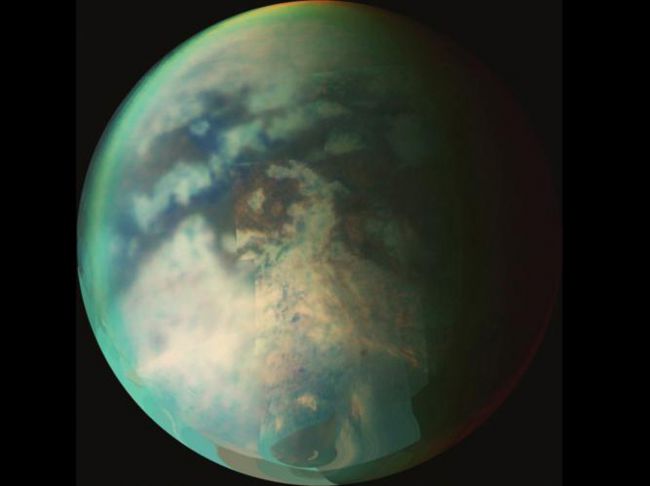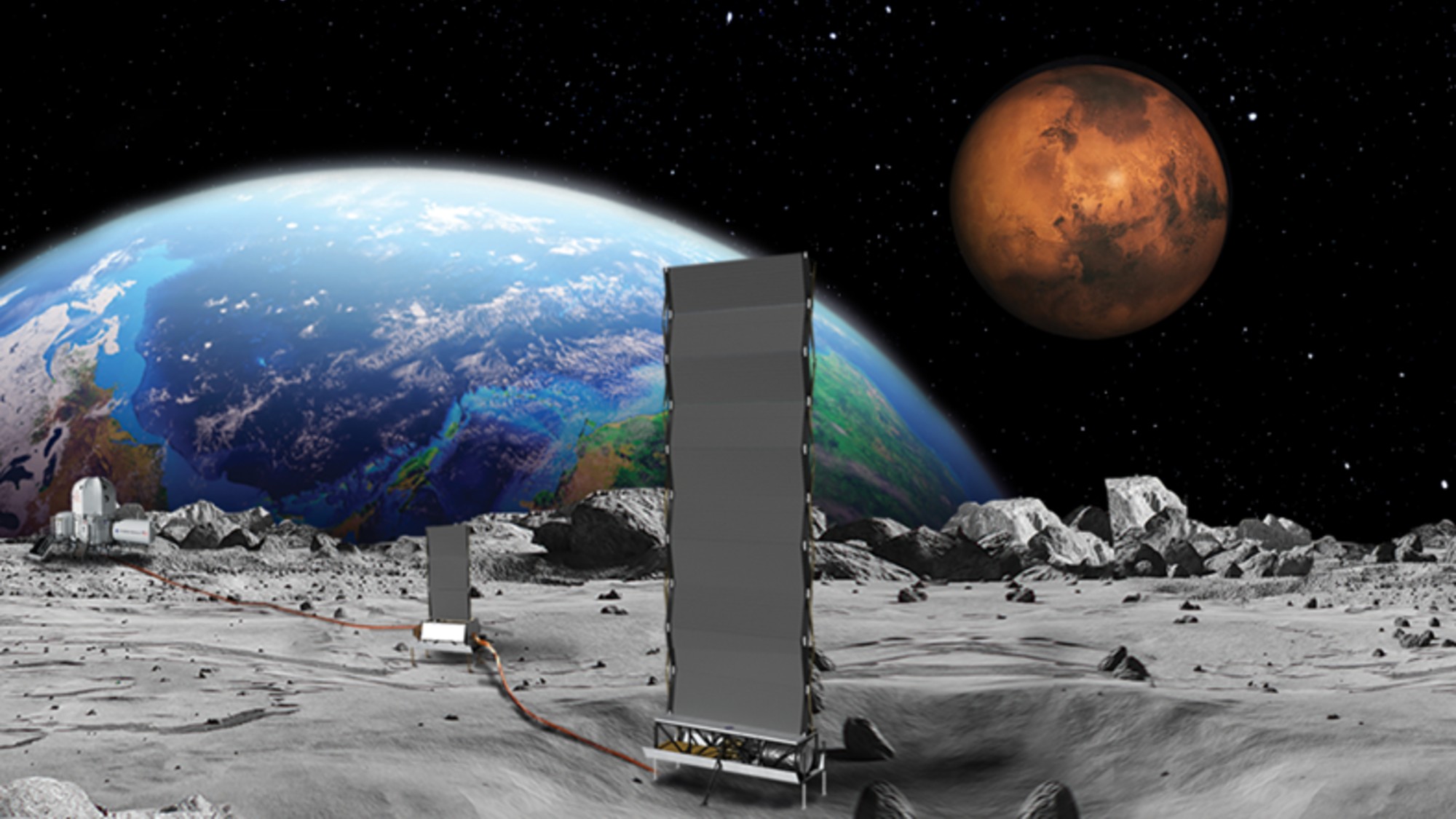Scientists are puzzling over the huge amounts of ice on Saturn's biggest moon

A free daily email with the biggest news stories of the day – and the best features from TheWeek.com
You are now subscribed
Your newsletter sign-up was successful
Years after NASA's Cassini spacecraft finished its mission to observe Saturn, we're still learning more from the data it sent back. This time, new analysis reveals something we've never noticed before from Titan, the largest moon that orbits our sixth planet.
The research, published on Monday in Nature Astronomy, suggests that Titan doesn't just have ice in scattered patches along its surface, as we've observed before. Beyond that, scientists discovered a massive block that stretches across a large part of the satellite: nearly 4,000 miles long.
This huge amount of ice runs halfway across the middle of Titan, like a belt, Space explained. And because the data Cassini collected was limited, scientists have no idea what sort of "geologic feature" could be lurking beneath all that frozen water.
The Week
Escape your echo chamber. Get the facts behind the news, plus analysis from multiple perspectives.

Sign up for The Week's Free Newsletters
From our morning news briefing to a weekly Good News Newsletter, get the best of The Week delivered directly to your inbox.
From our morning news briefing to a weekly Good News Newsletter, get the best of The Week delivered directly to your inbox.
Titan is, in many ways, an "eerie twist" on Earth — it has a nitrogen-rich atmosphere, and liquid rain that fills its lakes and seas, just like we do. But Titan is so cold that all its water is frozen — which means the rain isn't water, but other compounds that would be gases here on Earth. That can sometimes make Titan a difficult place to study from so far away. For this research, scientists used a new technique that allowed them to look past the most dominant features of their data and pay closer attention to what was hidden behind them.
Learn more about all Cassini is still teaching us at Space.
A free daily email with the biggest news stories of the day – and the best features from TheWeek.com
Shivani is the editorial assistant at TheWeek.com and has previously written for StreetEasy and Mic.com. A graduate of the physics and journalism departments at NYU, Shivani currently lives in Brooklyn and spends free time cooking, watching TV, and taking too many selfies.
-
 ‘Poor time management isn’t just an inconvenience’
‘Poor time management isn’t just an inconvenience’Instant Opinion Opinion, comment and editorials of the day
-
 Bad Bunny’s Super Bowl: A win for unity
Bad Bunny’s Super Bowl: A win for unityFeature The global superstar's halftime show was a celebration for everyone to enjoy
-
 Book reviews: ‘Bonfire of the Murdochs’ and ‘The Typewriter and the Guillotine’
Book reviews: ‘Bonfire of the Murdochs’ and ‘The Typewriter and the Guillotine’Feature New insights into the Murdoch family’s turmoil and a renowned journalist’s time in pre-World War II Paris
-
 NASA’s lunar rocket is surrounded by safety concerns
NASA’s lunar rocket is surrounded by safety concernsThe Explainer The agency hopes to launch a new mission to the moon in the coming months
-
 Blue Origin launches Mars probes in NASA debut
Blue Origin launches Mars probes in NASA debutSpeed Read The New Glenn rocket is carrying small twin spacecraft toward Mars as part of NASA’s Escapade mission
-
 Dinosaurs were thriving before asteroid, study finds
Dinosaurs were thriving before asteroid, study findsSpeed Read The dinosaurs would not have gone extinct if not for the asteroid
-
 Africa could become the next frontier for space programs
Africa could become the next frontier for space programsThe Explainer China and the US are both working on space applications for Africa
-
 NASA reveals ‘clearest sign of life’ on Mars yet
NASA reveals ‘clearest sign of life’ on Mars yetSpeed Read The evidence came in the form of a rock sample collected on the planet
-
 SpaceX breaks Starship losing streak in 10th test
SpaceX breaks Starship losing streak in 10th testspeed read The Starship rocket's test flight was largely successful, deploying eight dummy satellites during its hour in space
-
 Rabbits with 'horns' sighted across Colorado
Rabbits with 'horns' sighted across Coloradospeed read These creatures are infected with the 'mostly harmless' Shope papilloma virus
-
 Why does the US want to put nuclear reactors on the moon?
Why does the US want to put nuclear reactors on the moon?Today's Big Question The plans come as NASA is facing significant budget cuts